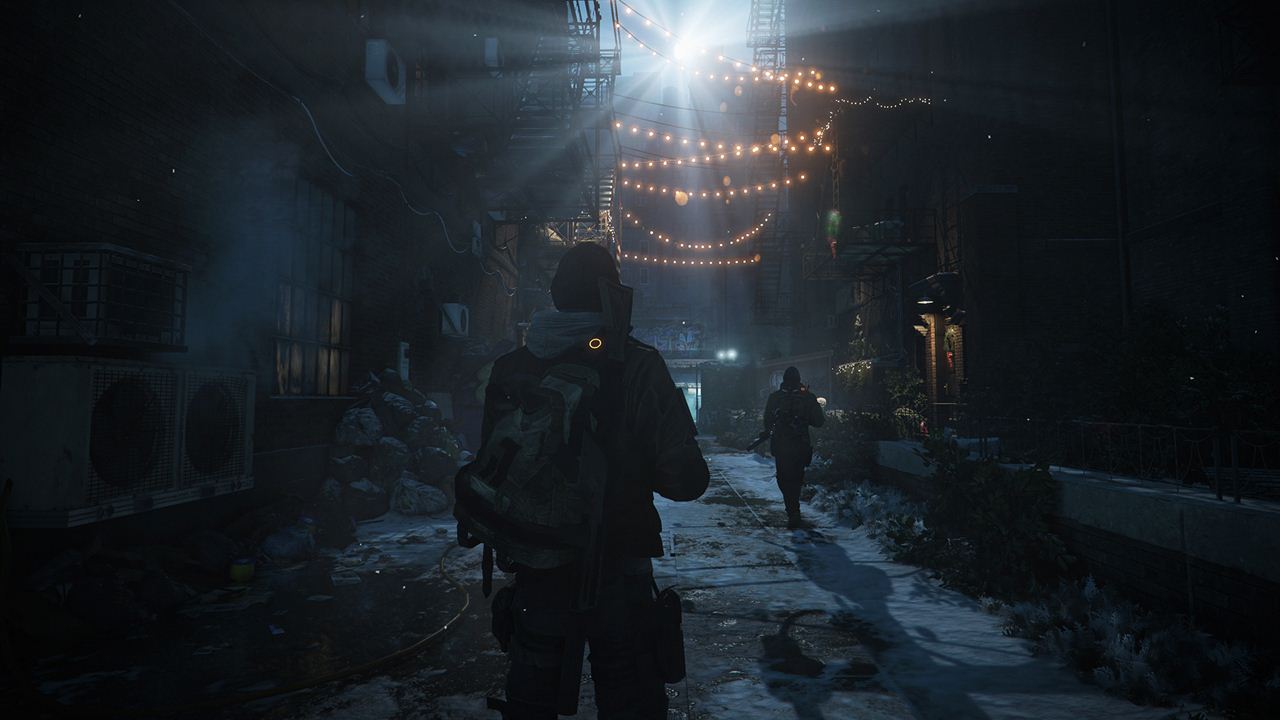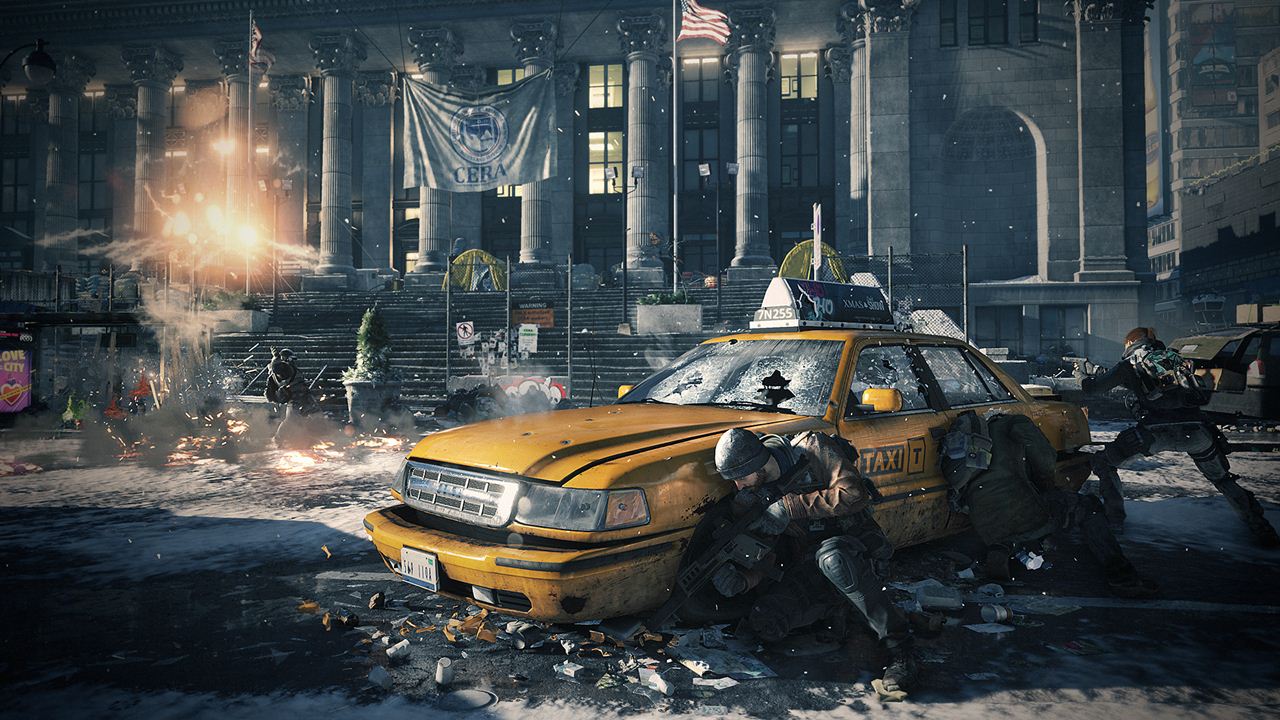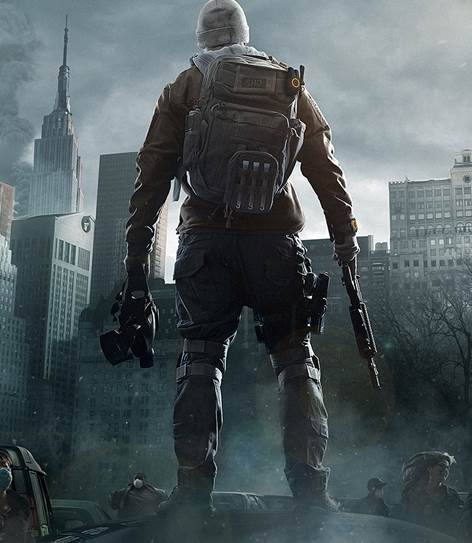
There’s a point you reach in a massively multiplayer online RPG where you wonder what the point of it all is. Side-quests suddenly feel like nothing but fetch quests and that brilliant over-arching story hyped up in the trailers and media has all but faded into the background. Why did you come to this world and did you really think you’d be able to make a difference like the videos said? We often have flashes of this feeling even when progressing normally through the game and it only intensifies the higher we go. Some games are better at managing this then others – Carbine Studios’ WildStar inundates you in content, both in terms of story missions and online RPG quests – but another game that holds potential in this regard is Tom Clancy’s The Division.
Before Ubisoft showed off some real gameplay at E3 2014, The Division was simply another delayed title. It was an MMO that focused on survival and scavenging due to a viral outbreak that had decimated the world. More than anything else, the focus was on the Snowdrop Engine and what it could do. It didn’t feel as though an actual game was attached to the entire experience. This changed at E3 though. This was not only because of the co-op gameplay trailer but because of the cinematic trailer.
"It's the MMO society that feels radically different. Most MMOs encourage freedom and cooperation. In The Division, it feels as though everyone is out for themselves."
The themes in the game were universally relatable. The world suddenly felt more alive and vibrant than technically sound. Factions, individuals and authority took shape. This was no longer a game about survival amidst tragedy. It was survival and tragedy incarnate.
What most interests us about The Division is just how far the post-apocalyptic theme can go in story-telling. This virus – whatever it is- has hit home. It hasn’t decimated the world in an over-the-top, blockbuster fashion but done so silently and nonchalantly. Most people don’t even notice it till it’s there and the breakdown in law and order is as gradual as it is swift. In many ways, it reminds us of Cormac McCarthy’s The Road in its tone and atmosphere.
Massive Entertainment will likely keep this intrigue throughout, allowing you to investigate the source of the virus, how it spread, what it is, and just what can be done to eradicate it. It’s the MMO society that feels radically different. Most MMOs encourage freedom and cooperation. In The Division, it feels as though everyone is out for themselves. There are factions looking to cause chaos and destruction, bullying the weaker survivors for the sake of amusement. There are those looking to control the city and influence those within it. And then there are those trying to put things back together like The Division agents.
The tangibles of survival become all the more complicated in these cases. Some people are just trying to get by while others are trying to rise to the top of the food chain. What do you want to be in these circumstances? The one who protects those hunted by lions or a lion yourself? Factoring in co-op makes these circumstances more interesting as you can likely go about making your mark on the world in various ways. This being the end of the world, there is a lot of potential for what you could do. Will things go back to the way they were? Will things get better or worse? Will you facilitate that change?
"When your game is focused on the future, even though the portrait has started out in thin strokes rather than broad outlines, there's no limit on the sense of purpose that players can have."
But when it comes to purpose, The Division seems to want to teach us more. Overarching storylines are substituted with various themes. These themes can be altered over time, just as The Division has evolved before our eyes from being a technical showcase to a competent MMO. The number of scenarios and set pieces that can be created is numerous. We could go back to the past and look into specific incidents that stood out during the downfall of civilization.
Various monsters could evolve from the ruins and wage war on humanity, thus leading to several different factions having to band together to survive. Heck, New York City could be exposed as being under quarantine in an Under the Dome-style scenario. If nothing else, Massive could keep The Road theme going for months or even years, slowly peeling back various facets of this enormous open world for players to explore.
The point is, when your game is focused on the future, even though the portrait has started out in thin strokes rather than broad outlines, there’s no limit on the sense of purpose that players can have.
Tom Clancy’s The Division will be out in 2015 for the PS4, Xbox One and PC. It’s an incredible undertaking based on what we’ve seen and we’ll wait to see how it plays out but we’re excited. What are your thoughts? Let us know below.

















